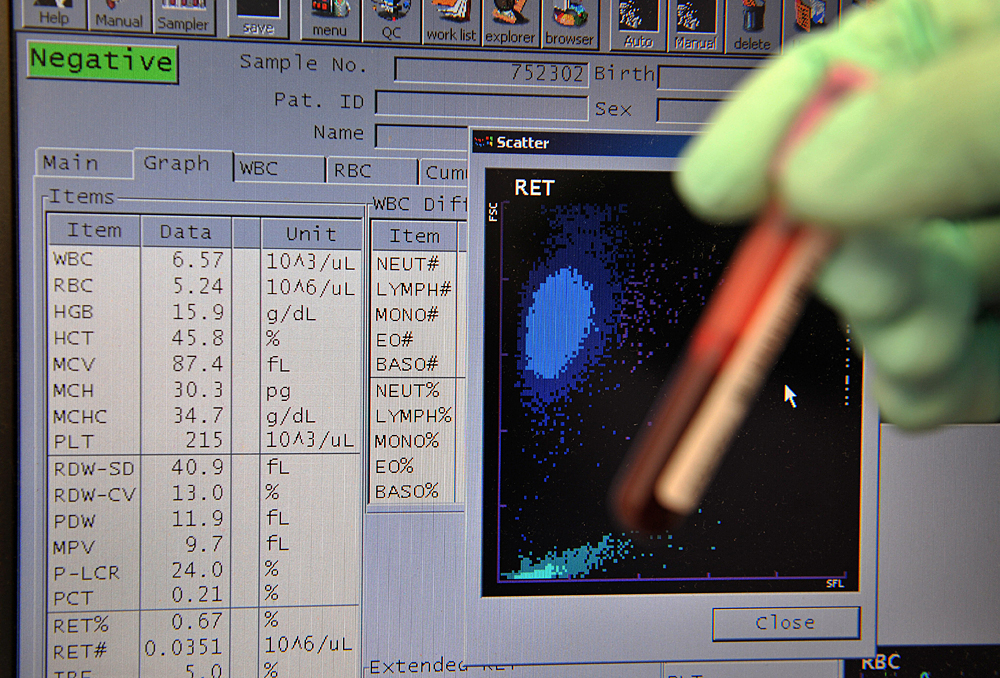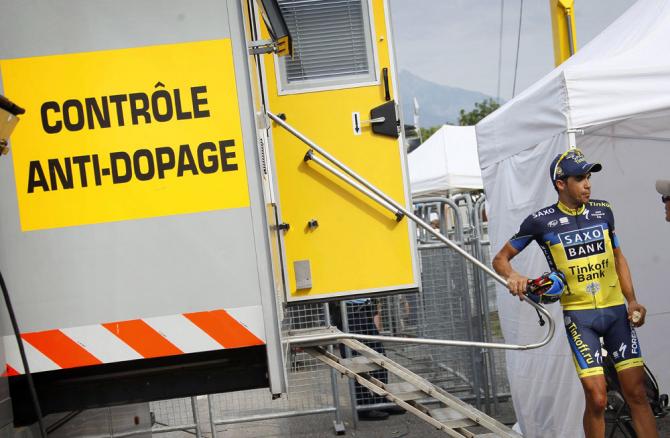Cyclist named as whistle-blower in British doping doctor investigation
Telegraph suggests Dan Stevens sparked Sunday Times under cover


Banned British cyclist Dan Stevens has been named as the whistle-blower who sparked the Sunday Times investigation into the activities of Dr. Mark Bonar, Harley Street doctor who reportedly claimed he has assisted 150 athletes with performance enhancing drugs, including British Tour de France cyclists and football player from several Premier League clubs.
Stevens was banned for 21 months for refusing to provide an out-of-competition anti-doping test in 2014. An initial 24-month ban was reduced to 21 months by the UK Anti-Doping Agency (UKAD) after he supplied “valuable anti-doping information” to the UCI-funded Cycling Independent Reform Commission (CIRC). His ban ended on November 1, 2015.
The Daily Telegraph newspaper named Stevens as the source for the Sunday Times investigation, saying he contacted the newspaper when UKAD failed to act on his information. UKAD was apparently given two written prescriptions signed by Dr Bonar but failed to pursue the matter because he is not governed by a sporting body.
They did not pass the information on to the General Medical Council, which controls doctors in the UK. The British minister for Culture and Sport John Whittingdale has ordered an inquiry into the taxpayer-funded anti-doping body and General Medical Council has now said it will investigate Dr. Bonar despite him not being registered to practice in Britain.
The Telegraph contacted Stevens on Sunday night but he said: “I'm sorry, I can't talk about this."
According to the Sunday Times, UKAD dismissed the athlete’s evidence as being of “little or no value” and said there were “no grounds for action to be taken against Dr Bonar”. The Daily Telegraph suggests that the evidence Stevens gave to CIRC was not related to Dr. Bonar.
However to test the whistle-blower’s evidence, the Sunday Times sent a promising Olympic runner to Bonar’s exclusive clinic in Harley Street in London. His appointments - which cost several hundred pounds - were recorded using a hidden camera.
Get The Leadout Newsletter
The latest race content, interviews, features, reviews and expert buying guides, direct to your inbox!
Bonar can be heard telling the athlete: “Some of these treatments I use are banned on a professional circuit. So, you have to be mindful of that. Having said that — I have worked with lots of professional athletes who do use these treatments.”
He then reportedly prescribed prohibited drugs to the runner and suggested his performance would improve with a course of EPO that he was happy to supply. The doctor went on to talk about the other sportsmen he claimed he had treated in a series of meetings with undercover reporters. He said drugs were now a part of sport and claimed he had “never met a clean athlete”.
The Sunday Times claimed Dr. Bonar named athletes from several different sports but has so far decided not to publicise them until Bonar’s claims have been further investigated. Those contacted by The Sunday Times either denied being treated by him or declined to comment.
The Sunday Times has no independent evidence Bonar treated the players and did not reveal any specific names. There is no evidence the major football clubs that are named, were aware of Bonar’s relationship with any players or drug use by them.
Denials and explanations
Bonar took to Twitter to deny the claims, despite the video evidence. He said: “The @SundayTimesNews allegations are false and very misleading. I have never had a relationship with any premier football club or player.”
“I have never prescribed Androgen therapy for the purpose of performance enhancement. I treat symptomatic men with low testosterone levels.”
In the Sunday Times video Dr. Bonar can be heard saying he avoids saying he dopes athletes by explaining: "I’d say I’m treating symptoms of androgen deficiency syndrome.”
When contacted by the Sunday Times, Bonar denied doping sports stars to enhance their performance and said he had not breached GMC rules. “The fact that some of my patients happen to be professional athletes is irrelevant. If they have proven deficiencies on blood work and are symptomatic, I will treat them.”
UKAD chief Nicole Sapstead issued a statement after the Sunday Times article was published, claiming her organisation did not have the jurisdiction to rule on Bodnar’s case because he is not governed by a sporting body.
“UKAD commenced an investigation into Dr Bonar following interviews with a sportsperson in April and May 2014,” the statement reads. “Following those interviews and an investigation, UKAD found that there was nothing to indicate that Dr Bonar was governed by a sport and UKAD had no other intelligence to corroborate the sportsman’s allegations.”
“As a result, UKAD recommended to the sportsperson that more information was needed and as Dr Bonar fell outside of UKAD’s jurisdiction, that information could be passed, if appropriate, to the General Medical Council, which does have the powers to investigate possible medical malpractice and pursue if necessary.”